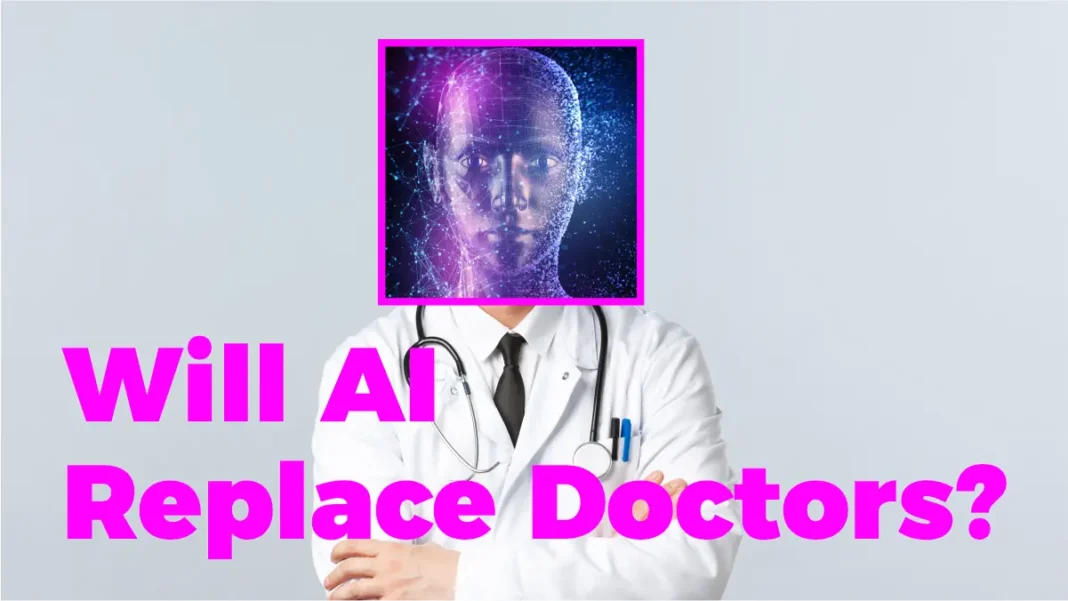Will AI Replace Doctors?
“Will AI replace doctors?” It’s a question dominating headlines and stirring debates across the healthcare and technology industries. From ChatGPT diagnosing rare diseases to AI systems that scan X-rays faster than radiologists, the idea of artificial intelligence replacing human doctors has gone mainstream. Tech leaders like Bill Gates have even predicted that AI could take over many medical roles within a decade. But does this mean doctors are becoming obsolete?
The short answer: No.
Despite AI’s impressive capabilities, human doctors bring essential value that machines can’t replicate – like empathy, ethical decision-making, and context-based care. This article explores the facts, myths, and future of AI in medicine and explains why your next doctor is still likely to be human.
What Can AI Do in Modern Medicine?
How AI Supports Diagnosis and Image Analysis
AI has shown remarkable performance in diagnostics. Tools like Google Health’s DeepMind can detect over 50 eye diseases. IBM Watson (in its oncology role) could process thousands of papers to recommend treatments. Startups like Aidoc and Zebra Medical Vision offer AI that analyzes scans in seconds.
AI-Powered Documentation and Workflow Optimization
Voice AI tools like Suki and Nuance’s DAX transcribe consultations in real-time, saving doctors hours of administrative work and reducing burnout.
Chatbots and Remote Patient Monitoring in AI-Driven Healthcare
AI-powered chatbots like Ada and Babylon Health help users self-assess symptoms. Wearables transmit real-time data to physicians, improving chronic care.
Why AI Won’t Replace Doctors Anytime Soon
Emotional Intelligence and Patient Trust
Patients seek empathy, eye contact, and emotional connection. These aspects build trust, which no algorithm can replicate. Even with perfect data, AI cannot comfort a worried mother or guide a patient through grief.
The Limits of AI in Clinical Judgment
Medicine often involves conflicting information or unclear outcomes. Only a human can weigh a patient’s values, life context, and cultural background when making a tough decision.
Ethics and Accountability in Healthcare
Who is responsible if AI misdiagnoses? Doctors navigate ethics daily: end-of-life care, DNR orders, or pediatric treatments. AI cannot bear moral or legal accountability.
The Real Future – Human-AI Collaboration in Medicine
Using AI Tools, Not Replacing Doctors
AI excels in pattern recognition and repetitive tasks. Doctors will use it to support decision-making, monitor patients remotely, and automate administrative work.
Examples of Doctors Working with AI
- Radiology: AI highlights scan abnormalities, radiologists interpret them.
- Surgery: Robotic tools like da Vinci are guided by expert hands.
- Primary Care: Chatbots triage minor symptoms; complex cases go to physicians.
Doctors are evolving into orchestrators of care who leverage AI for better outcomes.
Challenges of Replacing Doctors with AI
Data Bias and Healthcare Inequality
AI can reflect racial, gender, and socioeconomic biases in its training data. This can lead to misdiagnosis or unequal care delivery.
Legal and Regulatory Concerns About AI in Medicine
AI in healthcare raises questions: Who’s liable for AI mistakes? What standards must AI meet? Regulatory agencies are playing catch-up.
Can Patients Trust AI to Replace Human Doctors?
Studies show over 65% of patients still prefer human care, even if AI is faster or more accurate. Trust requires more than correct answers-it needs empathy and reliability.
The Evolving Role of Doctors in the Age of AI
Doctors of the future will need AI literacy, digital ethics training, and the ability to interpret and validate AI output. Medical education is adapting accordingly.
Roles will shift:
- Less time on forms and charts
- More time on communication, complex care, and ethical decisions
- Doctors as system designers and AI overseers
Where AI Replaces Doctors and Where It Fails
| Medical Field | AI Excels In | AI Falls Short In |
|---|---|---|
| Radiology | Scanning & detection | Patient explanations |
| Primary Care | Symptom triage | Building relationships |
| Mental Health | Journaling support | Deep emotional nuance |
| Oncology | Literature review | Palliative care & communication |
| Surgery | Robotic assistance | Emergency improvisation |
Frequently Asked Questions (People Also Ask)
Would doctors be replaced by AI?
No. AI may automate routine tasks, but doctors provide context, empathy, and ethical decision-making that machines cannot replicate.
Did Bill Gates say AI will replace doctors?
Yes, with nuance. Gates suggested AI could take over many medical tasks within 5-10 years, especially in underserved regions, but emphasized that human doctors will remain essential.
What profession will not be replaced by AI?
Roles requiring emotional intelligence, adaptability, and trust-such as doctors, therapists, and social workers-are not easily replaced by AI.
Will doctors be replaced in 10 years?
Unlikely. While AI will play a larger role in healthcare, full replacement of doctors is not feasible due to the complex, human-centered nature of the work.
What did Bill Gates say about AI in 10 years?
Gates predicted AI would reach a level where it can deliver high-quality medical and educational advice at scale, especially benefiting people without access to professionals.
Is AI a threat to doctors?
Not directly. AI is a tool. It may replace parts of a doctor’s job but also offers support, efficiency, and accuracy-freeing up doctors to do what they do best: care.
What jobs will Bill Gates replace with AI?
Gates named doctors and teachers as examples of roles AI could assist with or replicate partially in specific contexts.
What medical jobs won’t be replaced by AI?
- Surgeons
- Psychiatrists
- Pediatricians
- Palliative care physicians These roles require deep personal interaction and ethical nuance.
Will dentists be replaced by AI?
No. AI can assist in diagnosis and treatment planning, but the hands-on nature of dental work and patient interaction keeps this role human-led.
Will AI Replace Doctors?
So, will AI replace doctors? No-but it will transform them. Doctors will shift from being sole decision-makers to collaborators, supervisors, and ethical leaders in AI-driven systems.
Medicine is entering an era of synergy-where the best outcomes come from AI and humans working together, not one replacing the other.


